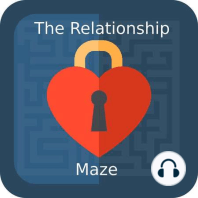25 min listen

Why it is so hard to leave an abusive relationship
Why it is so hard to leave an abusive relationship
ratings:
Length:
35 minutes
Released:
Mar 7, 2022
Format:
Podcast episode
Description
If you know someone who is in an abusive relationship, you may wonder why they are putting up with the abuse and just don't leave. You may also ask yourself this question if you are currently in a relationship that is abusive.Domestic abuse is a pattern of behaviour in relationships where one partner maintains power and control over the other. The abuse consists of physical, emotional, sexual, economic, psychological or spiritual acts that threaten the partner. The partner who is at the receiving end of abuse is put down, belittled, intimidated, frightened, manipulated, hurt, shamed, blamed or injured. Domestic abuse occurs across gender, socioeconomic, ethnic, sexual, religious or cultural boundaries. Man can abuse women and women can abuse man. The same goes for anybody who identifies as non-binary. In today's episode we look at two aspects of domestic abuse: the abuse cycle and the trauma bond. We also look at the connection between an insecure attachment style and being in an abusive relationship. We use the term 'victim' or 'survivor' (this term emphasises the capacity of people who are the receiving end of domestic abuse to develop strategies that help them manage the abuse).Abuse in relationships usually unfolds gradually. The perpetrator is mostly experienced as charming, caring and loving in the early stages of the relationship.In the abuse cycle we identify four typical phases: the tension building phase, the crisis point/assault, reconciliation/honeymoon phase and the return to 'normality'/calm phase. The glue that binds together perpetrator and victim is the trauma bond (also called Stockholm Syndrome). When in a situation that is experienced as dangerous our natural instinct is to turn towards the person closest to us for soothing. In abusive relationships that very person is also the source of the threat and fear. In the emotional confusion this causes for victims/survivors, they become increasingly anxious and more and more dependent. In particular in the reconciliation phase of the abuse cycle when the victim experiences 'love bombing' by the perpetrator the victim feels soothed and reaffirmed again by their partner. There is the perpetual hope that everything will be alright again eventually.Survivors of domestic abuse tend to be in a 'freeze' state of the fight/flight/freeze response of the automatic nervous system. The safest way to survive the abuse is to 'play dead': to shut down, dissociate , deny or appease. A nervous system that is in a chronic freeze response often leads to a number of physiological manifestations: chronic headaches, stomach pain, high blood pressure, fatigue, depression and anxiety and many other PTSD (post traumatic stress disorder) symptoms.Survivors of domestic abuse are often isolated by their abusive partner. They often doubt that they are at receiving end of abuse. If you have any sense of regularly being put down, controlled, threatened, physically assaulted or made to engage in any sexual contact against your will, it helps to talk to somebody else. It is likely that you are in an abusive relationship. There are a number of organisations available that help you plan for safety as well as for housing or financial support. For further information about domestic violence and abuse and links to organisations in the UK that help please find the NHS link here. Please check the help that is available in your country. There are many non-profit organisations available across the globe. The United Nations also has information and number of links.For further information about The Relationship Maze check out our website and
Released:
Mar 7, 2022
Format:
Podcast episode
Titles in the series (100)
Change your thoughts, transform your relationships by The Relationship Maze